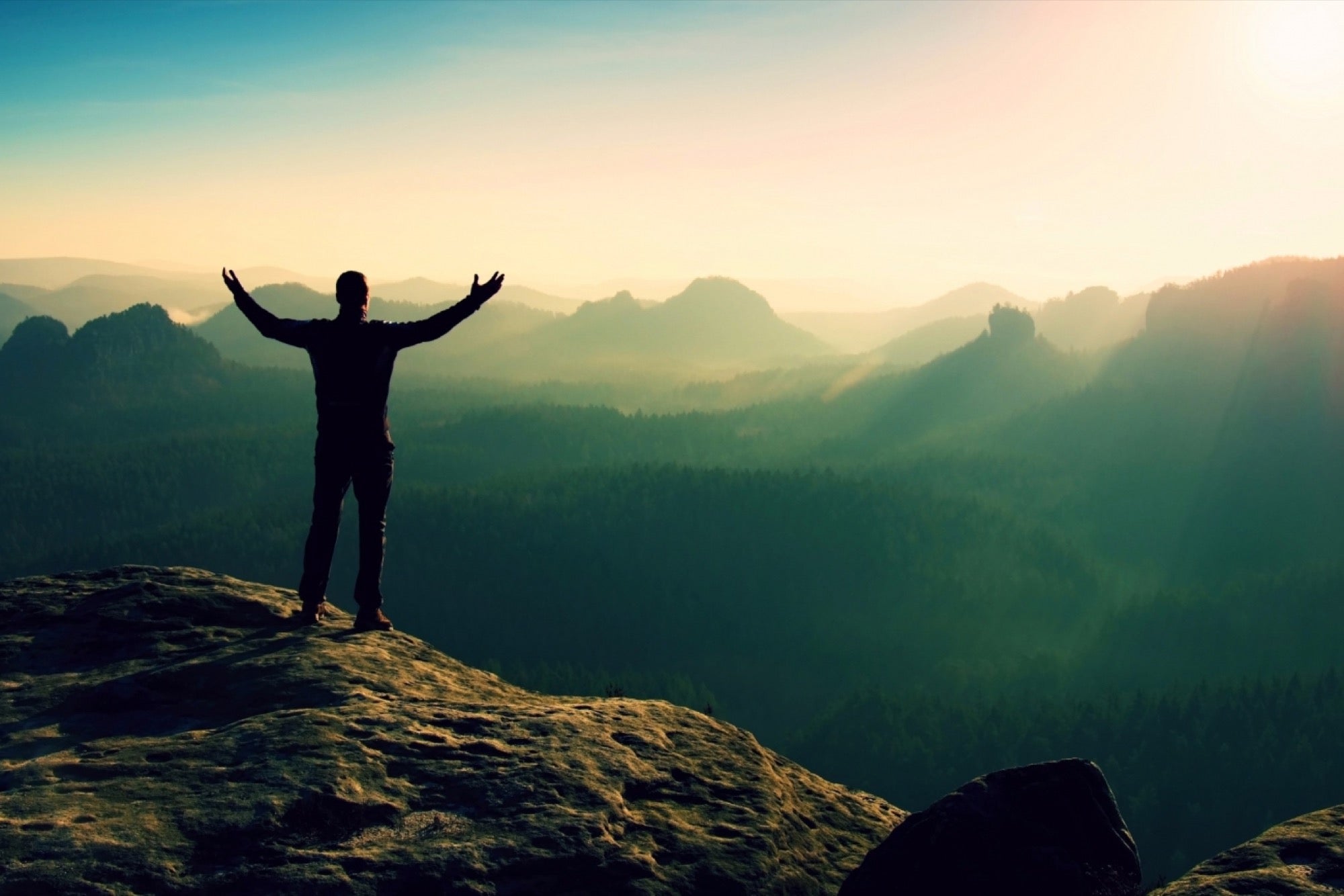How to Be the Change In all of the doing of modern life, it's a wonder we don't question what we are being.
By Lewis Howes Edited by Dan Bova
This story originally appeared on Lewis Howes

"One person can make a difference and everyone should try." – John F. Kennedy
Have you ever stopped to think what it means to be human?
We have so much power, yet haven't quite mastered responsibility to ourselves or our home, the Earth, and her other inhabitants.
Today I want to talk about Being.
From an early age we learn to run and shuffle towards accomplishments, checking off the items on our to do lists, mindlessly following the hustle of life around us. Like a driver on a four-lane highway unaware she's speeding because everyone around her is driving 85 in a 65 and she is simply going with the flow.
Related: How to Hardwire Your Brain for Happiness
In all of the doing of modern life, it's a wonder we don't question what we are Being.
We are after all human beings, not human doings.
Words are powerful invocations.
Who are you being right now?
Who would you like to be?
What will it take from you to be what you wish?
Gandhi famously said we need to, "Be the Change we want to see in the world."
What does that mean?
Most of us are familiar with doing things. We can change our hair color or cut; we can change the volume of our voice from loud to soft; we can change the soup from bland to salty.
If I want to see an end to injustice in our country, what can I do about it? What is there to do?
Being the change means being peaceful if I want to see peace in the world.
Being the change means eradicating the tendency for violence and power and fear within myself, so that one person at a time is affected by my way of being.
Related: The 10 Success Principles to Create an Abundant Life
If I am not being peace, how can I expect peace?
In 1923, pioneering psychologist Carl Jung heard a story of a Taoist medicine man who helped bring rain to a village in serious drought. Jung was told this story by Richard Wilhelm who spent many years studying Chinese culture and wrote a translation of the I, Ching.
The rainmaker came from a great distance and upon arriving in the village asked only for a small hut to stay in. He retreated to the hut for 3 days and on the 4th day it rained AND snowed at a time of year that snow did not normally come.
When Wilhelm met the rainmaker he asked him how he had made it rain. The rainmaker replied that he was not responsible for the rain. Wilhelm asked in a different way so that the rainmaker could understand and inquired as to what he had done those 3 days in the hut. "Oh I can explain that," the rainmaker said.
"I come from another country where things are in order. Here they are out of order, they are not as they should be by the ordinance of the heavens. Therefore the whole country is not in Tao, meaning in harmony, and I also am not in balance because I am in an unbalanced country. So I had to wait for three days until I was back in balance and then naturally the rain came."
Carl Jung loved this story very much and told it often to convey the idea that our way of being can have a massive effect on the world and how just one person can make magic happen for everyone.
How do you want your world to be now?
How do you want it to be for your children, and your grandchildren?
Who do you get to be to create that future?
How are you being when you are in the world doing?
Subscribe on iTunes, Stitcher Radio or TuneIn










